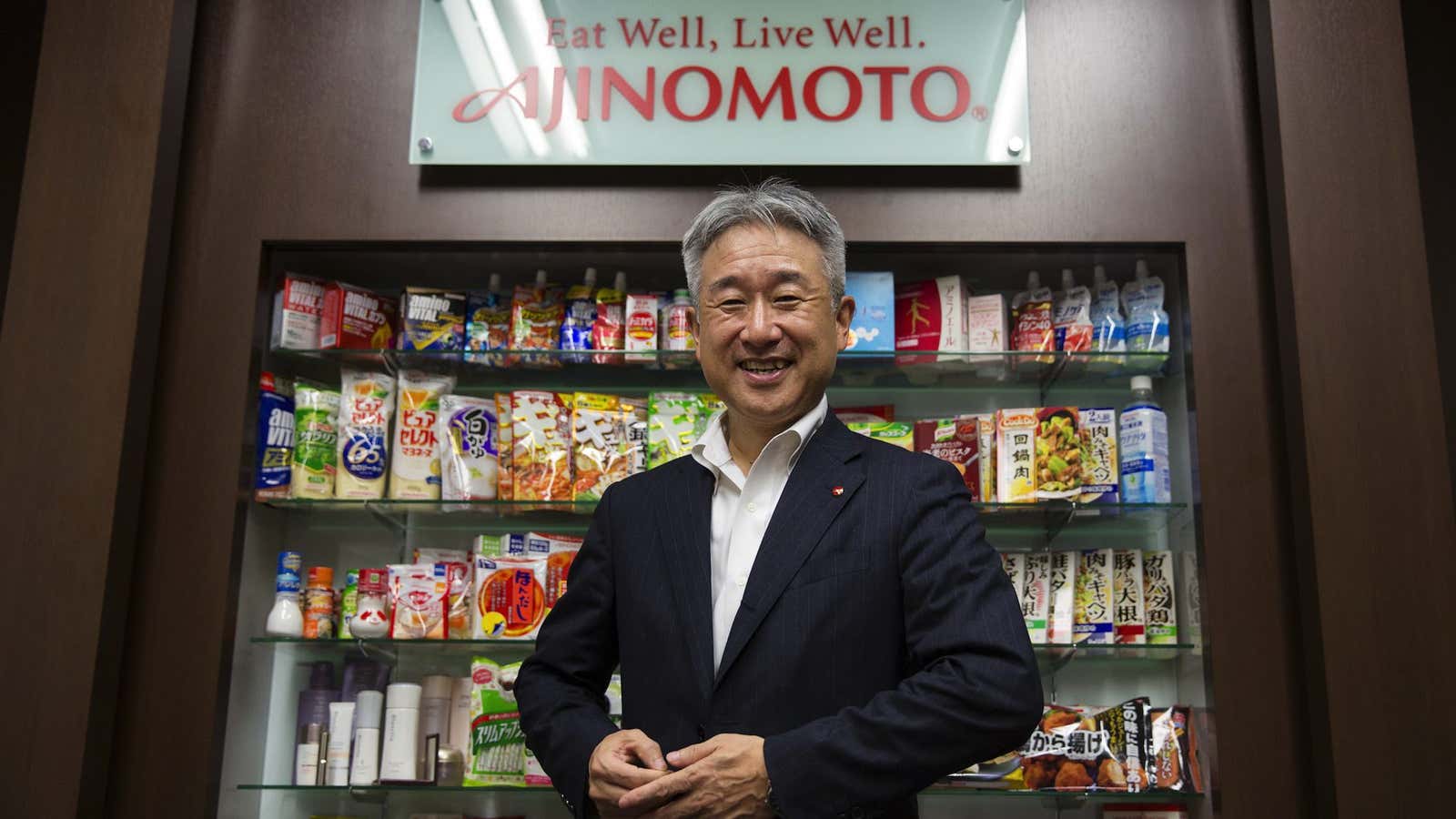Japanese food giant Ajinomoto, whose name is synonymous with the flavor enhancer it first patented and popularized, monosodium glutamate (MSG), is now targeting Africa’s middle class. The food and ingredients producer is buying a 33% stake in Promasidor, which sells powdered milk, drinks, and seasonings in more than half of the countries on the continent.
The deal, worth $532 million, is the latest big bet on middle-class Africans and their appetite for packaged and processed food. Already, processed foods make up one third of food purchases for families in southern and eastern Africa, according to a Michigan State University study in 2014. That proportion should increase to almost half of all food purchases un the next 30 years, according to the study. Ajinomoto products have been present on the continent for many years via importers and affiliates but this is a major corporate move into Africa by the 100-year old company.
Last year, Kellogg’s spent $450 million on a 50% stake of a Nigeria-based food distribution company. Others have already benefited. the South African grocery chain, Shoprite, has expanded to 14 African countries and is now Africa’s largest retail chain. Indomie, an Indonesian instant noodle brand that first entered Nigeria in the 1990s, helped create an $600 million instant noodle sector of which it had a 70% market share, by 2013.
More processed food, which is increasingly being consumed by both rural and urban African households of low and high income levels, raises public health questions too. Ajinomoto is the world’s largest manufacturer of aspartame, the artificial sweetener used in brands like Equal and Nutrasweet that has been under scrutiny for years over potential health problems.
The company got its start with another questionable ingredient, MSG, which was discovered in 1908 by a Japanese scientist who isolated the glutamate flavor, now better known as umami, in sea kelp. Ajinomoto turned that flavor into a powder, patented it, and began distributing it across Japan.
Ajinomoto is relying on developing markets elsewhere too. Ajinomoto began manufacturing in India last year and earlier this year bought the Turkish food company Orgen Gida Sanayl for $67 billion.
There are growing concerns that as the African middle class grows and consume more processed foods as part of their faster moving urban lives, there will be a corresponding increase in non-communicable diseases. For example, the prevalence of diabetes in African adults has more than doubled since 1980.
